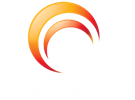
Question No 1: Frictional loss of head includes the loss of energy due to….
A: Viscosity
B: Turbulence
C: Both (a) and (b)
D: None of these
Question No 2: Discharge through a totally submerged orifice, is directly proportional to…..
A: Difference in elevation of water surfaces
B: Square root of the difference in elevation of water surface
C: Square root of the opening
D: Reciprocal of the area of the opening
E: None of these
Question No 3: The metacentric height of a body equals the distance between….
A: The centre of gravity and centre of buoyancy
B: The metacentre and centre of gravity
C: The centre of buoyancy and metacentre
D: None of these
Question No 4: Chezy’s formula is used to determine….
A: Head loss due to friction in pipe
B: Velocity of flow in pipe
C: Velocity of flow in open channels
D: None of these
Question No 5: Pick up the incorrect statement from the following….
A: In radial flow, fluid flows such that pressure and velocity at any point change with respect to its distance from the central axis
B: In radial flow, velocity of flow is in a radial direction
C: In radial flow, flow may take place radially inward to or outward from the centre
D: In radial flow, flow is one dimensional with stream lines parallel
Question No 6: To measure very low pressure, we use…..
A: Barometers
B: Piezometers
C: Manometers
D: Differential Manometers
Question No 7: The pressure less than atmospheric, pressure, is known…..
A: Suction pressure
B: Vacuum pressure
C: Negative gauge pressure
D: All of the above
Question No 8: A rise or fall of liquid in a glass tube of a very small diameter when dipped is….
A: Directly proportional to the force per unit length of periphery
B: Directly proportional to the sine of the angle of contact
C: Directly proportional to the specific weight of liquid
D: Inversely proportional to the diameter of the glass tube
Question No 9: In case of laminar flow through a circular pipe…..
A: Momentum correction factor is 1.33
B: Energy correction factor is 2.00
C: Both (a) and (b)
D: Neither (a) nor (b)
Question No 10: A triangular notch is preferred to a rectangular notch because….
A: Only one reading is required
B: Its formula is simple to remember
C: It gives more accurate results for low discharge
D: It measures a wide range of slows accurately
E: All of the above
Question No 11: An ideal fluid…
A: Is frictionless and incompressible
B: Obeys Newton’s law of velocity
C: Is similar to gas
D: Is very viscous
Question No 12: In C.G.S. system the units of kinematic viscosity, is…..
A: Stoke
B: Poise
C: Newton
D: None of these
Answer Here
- D
- B
- B
- C
- D
- C
- D
- C
- C
- E
- A
- A


